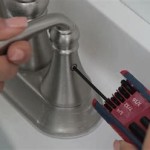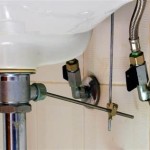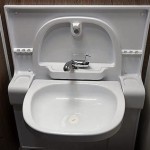Will Vinegar Damage Bathroom Tile Paint?
Vinegar is a common household cleaning agent known for its versatility and ability to tackle various cleaning tasks. Its acidic nature makes it effective at removing grime, soap scum, and hard water stains. However, when it comes to bathroom tile paint, using vinegar can be a risky proposition. While it may seem harmless, the acidic properties of vinegar can potentially damage certain types of paint, leading to discoloration, peeling, and a dull finish.
To determine whether vinegar poses a threat to your bathroom tile paint, it's essential to understand the different types of paint commonly used on tiles and their susceptibility to vinegar's acidic nature.
Understanding Bathroom Tile Paint
Bathroom tile paint is designed to withstand the unique challenges of a humid environment, including frequent exposure to water, soap, and cleaning agents. There are two main types of bathroom tile paint:
- Epoxy Paint: This type of paint is highly durable and resistant to moisture, making it suitable for high-traffic areas like bathrooms. Epoxy paint typically forms a tough, non-porous surface that is less susceptible to damage from vinegar. However, prolonged exposure to vinegar can still weaken the paint's protective layer over time.
- Acrylic Paint: Acrylic paint is another popular choice for bathroom tiles, offering a smooth, washable finish. While generally durable, acrylic paint is more susceptible to damage from acidic substances like vinegar. The acidic nature of vinegar can react with the acrylic resin, leading to discoloration, fading, and even peeling.
The type of paint used on your bathroom tiles will play a crucial role in determining the potential damage caused by vinegar.
Factors Influencing Vinegar's Impact on Bathroom Tile Paint
Several factors contribute to the degree of damage that vinegar might inflict on bathroom tile paint:
- Concentration: The concentration of vinegar used can significantly impact its effectiveness and potential for damage. Diluted vinegar solutions have a weaker acidic effect, decreasing the risk of paint damage. However, using undiluted vinegar directly on painted surfaces can be highly detrimental.
- Duration of Exposure: Leaving vinegar on painted surfaces for extended periods can exacerbate the damage. The longer the exposure, the greater the chance of the acid reacting with the paint, causing discoloration or peeling. It's crucial to rinse the vinegar solution off thoroughly after cleaning.
- Paint Quality: The quality of the paint used on the tiles plays a significant role in its resistance to acidic substances. High-quality paint formulations are generally more durable and less susceptible to damage from vinegar.
- Surface Condition: The condition of the paint prior to vinegar exposure can influence its susceptibility to damage. Damaged or worn-out paint is more likely to be affected by the acidic nature of vinegar, exacerbating existing problems.
By understanding these factors, you can better assess the potential risks of using vinegar on your bathroom tile paint.
Alternatives to Vinegar for Cleaning Bathroom Tiles
While vinegar can be an effective cleaning agent for many surfaces, it's not always the best choice for bathroom tile paint. Several alternative cleaning solutions are safer and just as effective:
- Baking Soda: Baking soda is a gentle abrasive that effectively removes grime and stains without damaging paint. Create a paste by mixing baking soda with a little water and apply it to the tile surfaces. Leave it for a few minutes before scrubbing and rinsing.
- Dish Soap: Dish soap is excellent for removing soap scum and grease from bathroom tiles. Mix a few drops of dish soap with warm water and use a soft cloth or sponge to clean the tiles. Rinse thoroughly afterward.
- Commercial Tile Cleaners: Several commercially available tile cleaners are formulated specifically for bathroom surfaces. These cleaners are designed to remove dirt, grime, and stains effectively without damaging the paint.
These alternatives offer a safer and more reliable approach to maintaining the cleanliness of bathroom tiles without compromising the integrity of the paint.

7 Damage Free Ways To Clean Tiles With A Diy Vinegar Solution

7 Damage Free Ways To Clean Tiles With A Diy Vinegar Solution

7 Damage Free Ways To Clean Tiles With A Diy Vinegar Solution

Yes You Can Paint Shower Tile And It Won T L Porch Daydreamer

7 Damage Free Ways To Clean Tiles With A Diy Vinegar Solution

How To Clean Tiled Floors With Vinegar Cleaning Guides By Fantastic

Advice On Cleaning Black Bathroom Tiles That Have White Residue Tiling Forum Tilers

Porcelain Shower Tile Did I Ruin The Grout

3 Ways To Clean Tile With Vinegar Wikihow
Can Vinegar Ruin The Glaze On Ceramic Tiles I Used 50 Water And To Scrub Glazed Quora
Related Posts







